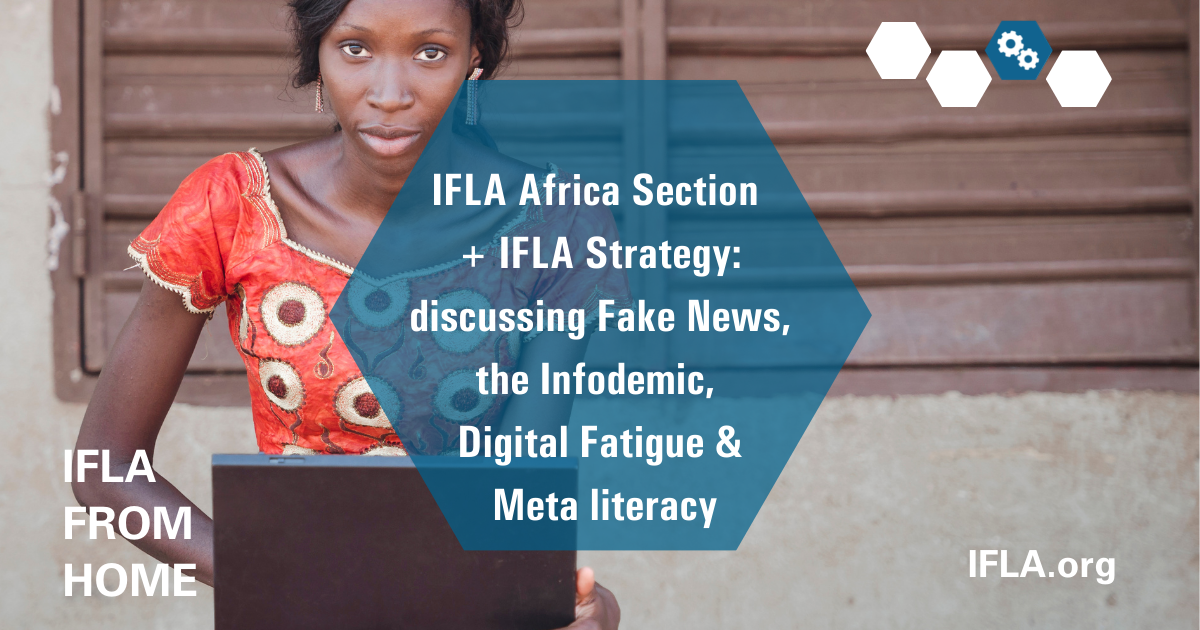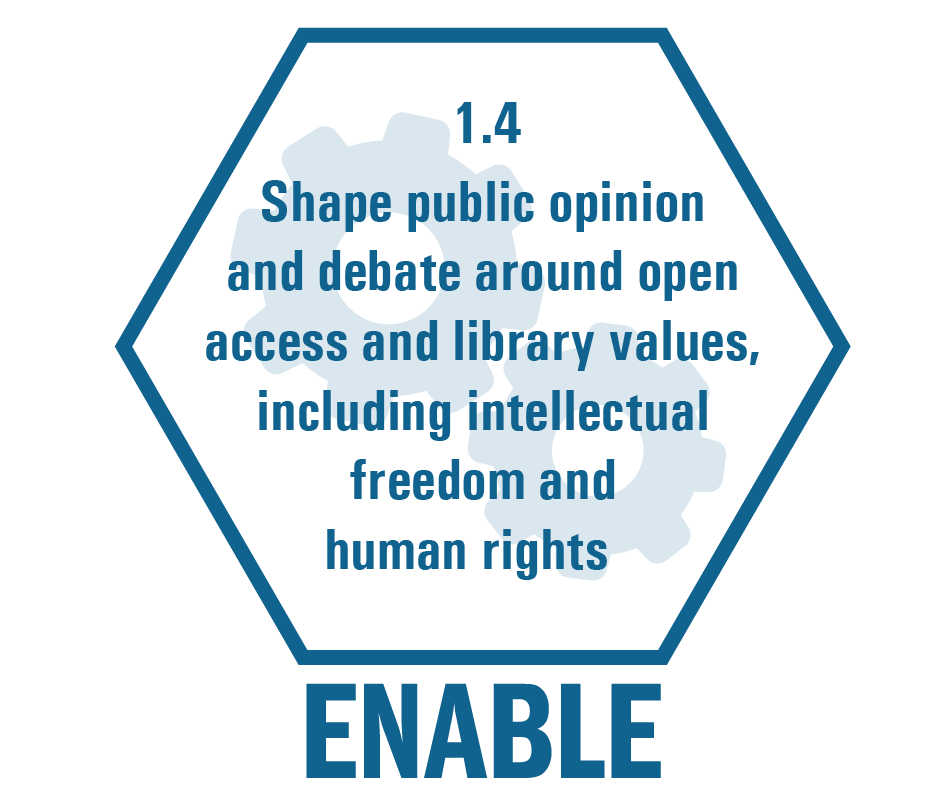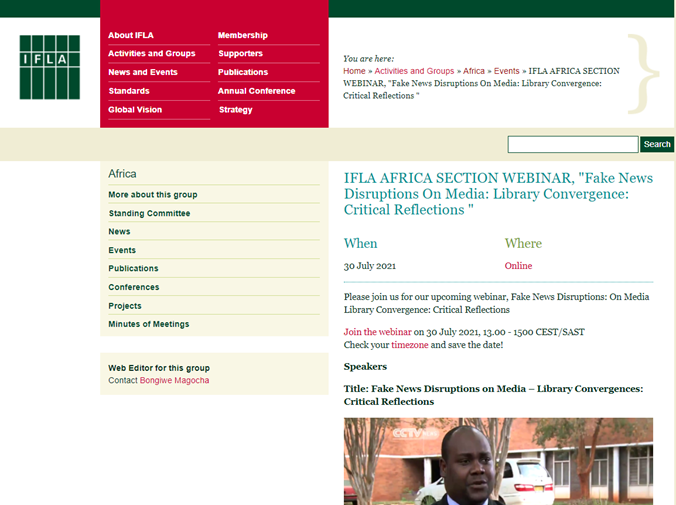IFLA Africa Section + IFLA Strategy: discussing Fake News, the Infodemic, Digital Fatigue and Meta literacy
29 July 2021

Closely aligned to the IFLA Key Initiative 1.4 “Shape public opinion and debate around open access and library values, including intellectual freedom and human rights”, IFLA’s Africa Regional Section has been delivering exciting and impactful webinars and panel discussions related to the ever-changing digital landscape we all live in. Digital fatigue, the Infodemic, Meta literacy and Fake News Disruptions on Media are just a few of the hot topics debated.
Upcoming Webinar: “Fake News Disruptions on Media: Library Convergence: Critical Reflections”
As part of this work, the Section will proudly deliver a webinar looking at actions journalists and librarians can take together, and the role that media literacy education plays in combatting fake news. Through this, they will help realise the potential of collaboration with journalists as a route to increasing media literacy within library communities.
Join this exciting webinar on 30 July.
- IFLA website: https://www.ifla.org/node/94001
- Zoom link: https://zoom.us/j/98783913915
Panel Discussion: Digital fatigue, the Infodemic and Meta literacy
In May of this year, IFLA’s Africa Section hosted a panel discussion on the subject of “Digital fatigue, Infodemic and meta literacy”. Impressive results and critical reflections came out of this discussion from the African library community. Read below and learn more about those emerging subjects and the role of librarians in the ever-changing digital landscape.
Watch an excerpt of this panel discussion and the Q&A at the end
What is the Infodemic?
The word ‘infodemic’ is a combination of “information” and “epidemic”. It refers to the idea of a sweeping information disorder affecting users’ capacity to find answers to their information needs. Many African governments have responded to this situation, for example using laws to curtail fake news peddling and launching awareness campaigns encouraging users to evaluate content before sharing it.
What is Meta-literacy?
Another key concept – meta-literacy – recognizes that meta-literate “learners,” must learn continuously, given the constantly evolving information landscape. This includes the importance of new literacies such as digital literacy, as well as of metacognitive reflection as an empowering practice for learners.
What is Digital Fatigue?
Meanwhile, digital fatigue is a state of mental exhaustion and disengagement that occurs when people are expected to use numerous digital tools and apps to solve their information needs in a changing information landscape.
Today’s learners and users communicate, create, and share information using a range of information technologies such as social media, mobile devices and apps, and virtual worlds. Librarians should continuously learn, so that they can cope with the ever-changing information landscape with varying learners and users with unique literacies.
In particular, in the context of the pandemic, they need knowledge and skills to promote information hygiene practices that can usefully contribute towards building safe digital spaces.
Rachel Fischer, one of the Panel Discussion speakers shared with us her views on digital fatigue:
Perhaps now it is prudent to include social responsibility and digital well-being in the various roles of the information professional. The information professional should promote healthy boundaries, a balanced routine, and regular breaks to offset screen time.”
Read more about the IFLA Strategy 2019-2024
How is your library or library association engaging with the IFLA Strategy? Let us know! Post on your social media, using the hashtag #IFLAStrategy and #WeAreIFLA or send an email to Despina Gerasimidou, IFLA’s Strategic Development Officer at despina.gerasimidou@ifla.org.


